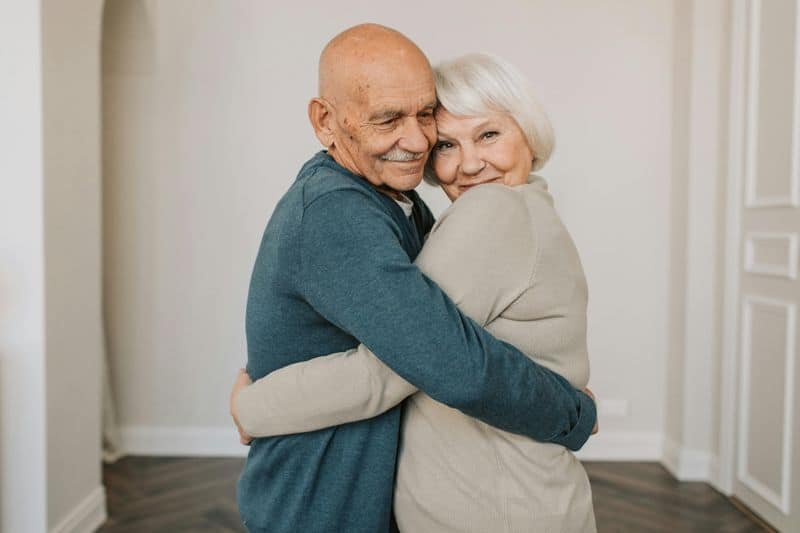Life has a funny way of teaching us its most valuable lessons when we’re least prepared to hear them. Like a cosmic joke, the wisest insights often arrive after we’ve already made our biggest mistakes.
But what if we could peek at these life truths earlier?
Here’s a collection of ten profound realizations most of us discover when our hair is graying and our backs are creaking.
1. The Joy Button Isn’t in Your Phone
Remember frantically checking notifications hoping for that dopamine hit? Years spent scrolling through others’ highlight reels while your actual life waited patiently offline. The digital world promised connection but delivered isolation in fancy packaging.
Real happiness hides in morning coffee steam, unexpected belly laughs with friends, and barefoot grass walks. These simple pleasures cost nothing yet somehow become life’s most expensive lessons.
By the time most folks realize their memories aren’t meant to be stored in the cloud, they’ve already missed countless sunsets while trying to capture the perfect one for social media.
2. Your Body Keeps the Score
“I’ll sleep when I’m dead” becomes hilariously ironic when insomnia kicks in at 45. That human vessel carrying your consciousness around? Turns out it wasn’t designed for energy drinks, all-nighters, and sitting hunched over keyboards for decades.
Our bodies silently record every skipped meal, stress-filled day, and postponed checkup. The bill arrives later—usually during midlife—when metabolism slows and mysterious aches become unwelcome roommates.
Funny how we treat our smartphones better than our bodies, carefully charging them nightly while we ourselves run on fumes and wishful thinking.
3. Everyone’s Winging It (Even Your Boss)
The grand cosmic joke: nobody actually knows what they’re doing! That intimidating manager? Probably googling solutions minutes before meetings. Your seemingly perfect parents? They were making it up as they went along too.
We waste precious decades trying to appear confident while secretly terrified of being exposed as frauds. Meanwhile, everyone else is doing exactly the same thing behind their professional masks and carefully curated social media.
What sweet relief comes when we finally understand that confusion is the natural state of being human! By then, unfortunately, we’ve already spent years in unnecessary anxiety about not having all the answers.
4. Your Parents Were People Too
As kids, we saw them as all-knowing superheroes or villains in our personal stories. Then suddenly, usually after they’re gone or we have our own children, the startling truth emerges: they were just regular humans figuring things out under tremendous pressure.
Their quirks and mistakes—the ones that drove us crazy—were often their best attempts at love with the emotional tools they had. Most were operating from unhealed wounds of their own, trying to break generational patterns without instruction manuals.
The compassion we finally develop for their humanity arrives tragically late, often when we can no longer share it with them face-to-face.
5. Grudges Are Heavy Luggage
That righteous anger felt so good at first—like armor protecting your wounded heart. You practiced your speech of confrontation for years, rehearsing perfect comebacks while showering. The betrayal became part of your identity.
Then one day, usually decades later, you realize you’ve been dragging this emotional suitcase uphill while the person who hurt you probably doesn’t remember the incident. The grudge has shaped your personality, relationships, and even your physical health.
Forgiveness isn’t about excusing bad behavior—it’s the spiritual equivalent of putting down a hundred-pound backpack you didn’t realize you were carrying. Most discover this liberation far too late.
6. Money Buys Freedom, Not Happiness
The plot twist nobody saw coming: that corner office and luxury car didn’t deliver the promised bliss! After decades climbing corporate ladders and accumulating stuff, many discover they’ve been optimizing for the wrong metrics entirely.
Financial security matters tremendously—but primarily because it buys time and choices. The joy comes not from the granite countertops but from having Tuesday afternoons free to teach your grandkid to ride a bike or pursue passion projects without fear.
By retirement, many realize they traded irreplaceable decades of presence for possessions that now sit unused in garages and storage units. The cosmic irony: what they really wanted was freedom all along.
7. The Universe Doesn’t Care About Your Timeline
Remember that life checklist? College by 22, career by 25, marriage by 30, kids by 35… The cosmic joke is how seriously we took these arbitrary deadlines. Life laughs at our carefully plotted schedules.
Some of the most beautiful developments arrive completely off-script: the career pivot at 50 that brings unexpected fulfillment, the great love that appears decades after you stopped looking. True happiness often comes from surrendering our white-knuckled grip on “the plan.”
Most people realize too late that their timelines were based on social pressure rather than personal truth. The universe operates on its own mysterious schedule—and it’s usually better than anything we could have designed.
8. Your Weirdness Is Your Superpower
Remember hiding your quirky interests and odd perspectives, desperately trying to seem normal? The cosmic irony: those unique traits you suppressed were actually your greatest gifts! Your peculiar way of seeing the world—the very thing bullies targeted—contained your genius.
Most spend decades contorting themselves to fit social expectations before realizing authenticity is what creates meaningful connection. Those who embraced their strangeness early built extraordinary lives while the rest wasted energy on exhausting conformity.
By retirement age, many finally stop caring what others think—only to discover this freedom was available all along. What might have happened if they’d unleashed their full, weird glory decades earlier?
9. Fear Is a Terrible Financial Advisor
“What if it doesn’t work out?” whispered Fear, convincing countless souls to stay in soul-crushing jobs and mediocre relationships. Safety feels wise in the moment but compounds into regret over decades.
The math of risk changes dramatically with age. At 80, few regret the failures and embarrassments—but nearly everyone mourns the adventures never attempted, the loves never pursued, the businesses never started. The risks not taken become the heaviest burdens.
Most discover too late that security was always an illusion anyway. Life’s greatest plot twist: those who embraced uncertainty often built more genuinely secure lives than those who clung desperately to the familiar.
10. Kindness Compounds Like Interest
While ambition drove us to optimize careers and investments, many overlooked life’s highest-return activity: simple human kindness. The small acts—remembering names, celebrating others’ victories, showing up during hard times—create ripple effects beyond imagination.
Unlike achievements that fade or possessions that depreciate, kindness appreciates over time. The thank-you note sent decades ago that someone still keeps. The encouragement that changed a life trajectory.
By life’s final chapters, many realize their legacy isn’t in résumés or bank accounts but in how they made others feel. The cosmic joke: this most valuable investment required no special talent, education, or privilege—just attention and an open heart.











